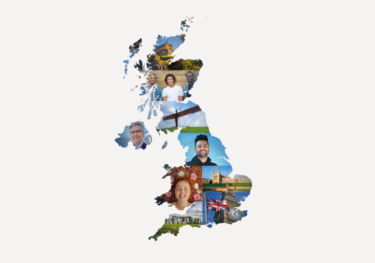Recent Release | 18 Oct 2022
The impact of YouTube in the UK

Economic Consulting Team
Oxford Economics

This study assesses YouTube’s contribution to GDP and employment in the United Kingdom, and its broader impact on society and culture.
YouTube enables content creators from the UK to reach both domestic and global audiences. Since creators are paid a share of revenues from adverts placed alongside their videos, access to these audiences can enable them to earn substantial incomes from their content. A successful YouTube channel can also help creators earn income from other sources, including product sales, brand partnerships, and live performances.
Successful channels not only provide jobs and income for creators, but also support further jobs and income in the supply chains behind the content and through workers’ spending. In total, our economic modelling suggests that YouTube’s creative ecosystem contributed more than £1.4 billion to the UK’s GDP and supported more than 40,000 full-time equivalent jobs in 2021.
In this report, we outline our economic analysis, as well as the findings of wider survey research investigating how YouTube can sustain careers for content creators; help businesses grow; deliver cultural and societal impacts; and build skills and knowledge amongst users.
Alongside the findings from our economic modelling and surveys, we present a series of case studies to highlight the personal stories of successful content creators in the UK.
About the team
Our Economic Consulting team are world leaders in quantitative economic analysis, working with clients around the globe and across sectors to build models, forecast markets and evaluate interventions using state-of-the art techniques. Lead consultants on this project included:

Margarida Secca Serra
Economist, Economic Impact
You might be interested in

From opportunity to impact – Assessing the economic, societal, and cultural benefits of YouTube in Canada in 2022
This study presents an updated assessment of YouTube’s contribution to Canada's GDP and employment, and its broader impact on society and culture.
Find Out More
The State of the Creator Economy – Assessing the Economic, Cultural, and Educational Impact of YouTube in the US in 2022
This study presents an updated assessment of YouTube’s contribution to US GDP and employment, and its broader impact on society and culture.
Find Out More
YouTube’un Türkiye’deki ekonomik, toplumsal ve kültürel etkisi
Bu çalışma, YouTube’un Türkiye’de GSYİH’ye ve istihdama katkısını ve toplum ve kültür üzerindeki daha geniş etkisini değerlendirmektedir.
Find Out More
A Platform for Indonesian Opportunity – Assessing the economic, societal, and cultural impact of YouTube in Indonesia in 2021
Oxford Economics worked closely with YouTube in the second quarter of 2022 to develop a rigorous approach to measuring the video platform’s economic, social, and cultural impact across Indonesia. In this study, we found that YouTube's creative ecosystem contributed IDR7.5 trillion to Indonesia's GDP and supported more than 200,000 full-time equivalent jobs across the economy in 2021.
Find Out More